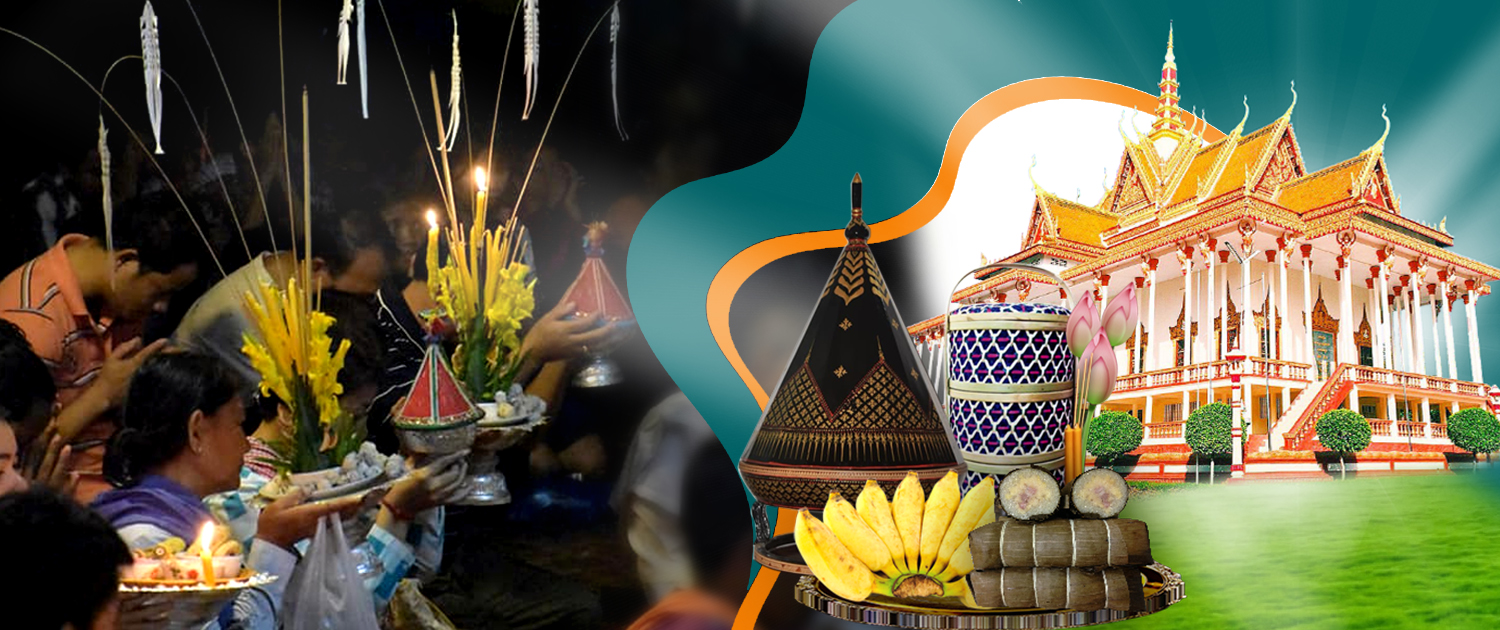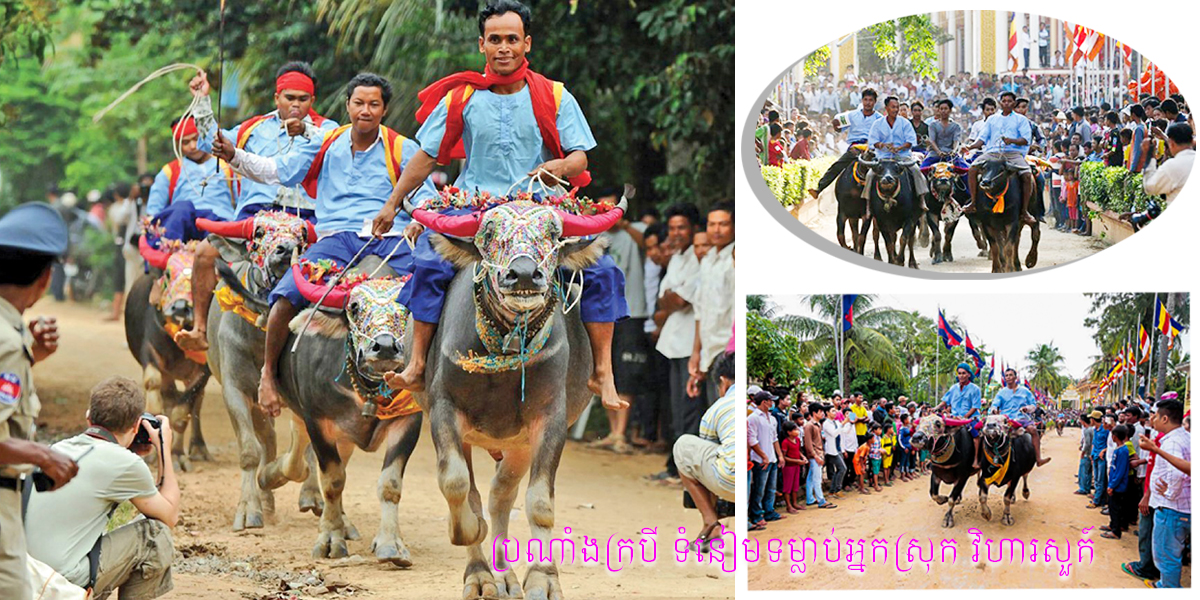Pchum Ben is a 15-day religious festival, culminating in celebrations on the 15th day of the tenth month in the Khmer Calendar (Luna Calendar), at the end of the Buddhist lent;
This is the time when Cambodians commemorate and show respect to deceased relatives of up to 7 generations. Monks chant sutras throughout the night without sleeping in prelude to the gates of after-world opening; an event that is presumed to occur once a year, and is linked to the cosmology of King Yama in the Pali Canon. The first 14 days of the festival are called Kan Ben (“observed celebration”). The 15th day is called Brochum Ben or Pchum Ben Day.
During this period, the gates of hell are believed to be opened and manes of the ancestors are presumed to be especially active. In temples around the country, adhering to canonical protocol, Cambodians offer food to Buddhist monks; a meritorious act that that has been traditionally practiced in Cambodia. People bring food to the temple not only for the monks, but also to feed hungry ghosts who could be their late ancestors, relatives or friends.
Pagodas are usually crowded with people taking turns to make offerings and to beg the monks to pray for their late ancestors and loved ones. For monks, it is customary for people to offer not just food, but more importantly, the Num Ansorm, a glutinous rice cake traditionally served on important occasions such as the Khmer New Year and during Pchum Ben festival. People would also leave food randomly at different temples, around the grounds, in the hope that their deceased relatives may chance upon and get to feast.
Buffalo Racing
Each year, millions of Cambodians visit Buddhist temples across the country to honor their deceased loved ones during a 15-day period commonly known as the Festival of the Dead. However, in Vihear Suor village, about 22 miles (35 km) northeast of Phnom Penh, villagers would wrap up the festival with a water buffalo race to entertain visitors and honour a pledge made centuries ago.
There was a time when many village cattle which provided rural Cambodians with muscle power to plough their fields, suddenly drop dead from an unknown disease. The villagers prayed to a spirit to help save their animals from the disease and promised to show their gratitude by holding a buffalo race each year on the last day of the “Pchum Ben” festival. Since then, the cattle have been safe and the villagers kept to their pledge. The race draws hundreds of spectators who come to see riders and their animals charging down the field; the riders bouncing up and down on the backs of their buffalo, whose horns are draped colorfully by cloth and various auspicious ornaments.
Buffalo races have grown in popularity over the years. Villagers trained for months in preparation for the event. The buffaloes raced in pairs and the winners receive monetary awards on top of the glory.


